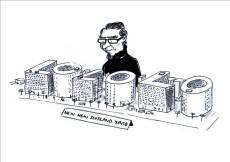November 9, 2013
Looking back on a year in which the office sought a clearer sense of identity
 It’s not often that workplace management becomes national business news but that happened at the end of February when the world became very interested for a while in the way we design and manage offices. The reason for this was the decision by Yahoo to ban homeworking for staff at its headquarters. The resultant period of shirt-rending at this challenge to received wisdom told us more about the changing view of the workplace than the actual decision by Yahoo. As the dust settled, we discovered that the Yahoo CEO Marissa Mayer had based her decision to change working practices on data from the company’s network that showed people working from home didn’t log on to the company Virtual Private Network as much as those in the office.
It’s not often that workplace management becomes national business news but that happened at the end of February when the world became very interested for a while in the way we design and manage offices. The reason for this was the decision by Yahoo to ban homeworking for staff at its headquarters. The resultant period of shirt-rending at this challenge to received wisdom told us more about the changing view of the workplace than the actual decision by Yahoo. As the dust settled, we discovered that the Yahoo CEO Marissa Mayer had based her decision to change working practices on data from the company’s network that showed people working from home didn’t log on to the company Virtual Private Network as much as those in the office.























November 18, 2013
Interview: Dave Coplin of Microsoft on Big Data, engagement and culture
by Mark Eltringham • Comment, Technology, Workplace, Workplace design
More →